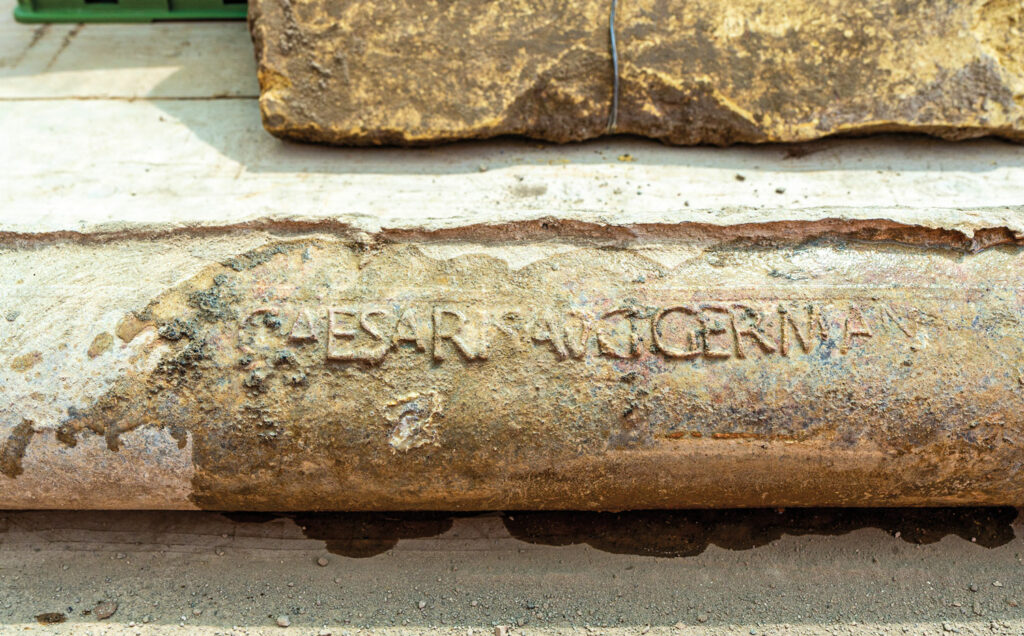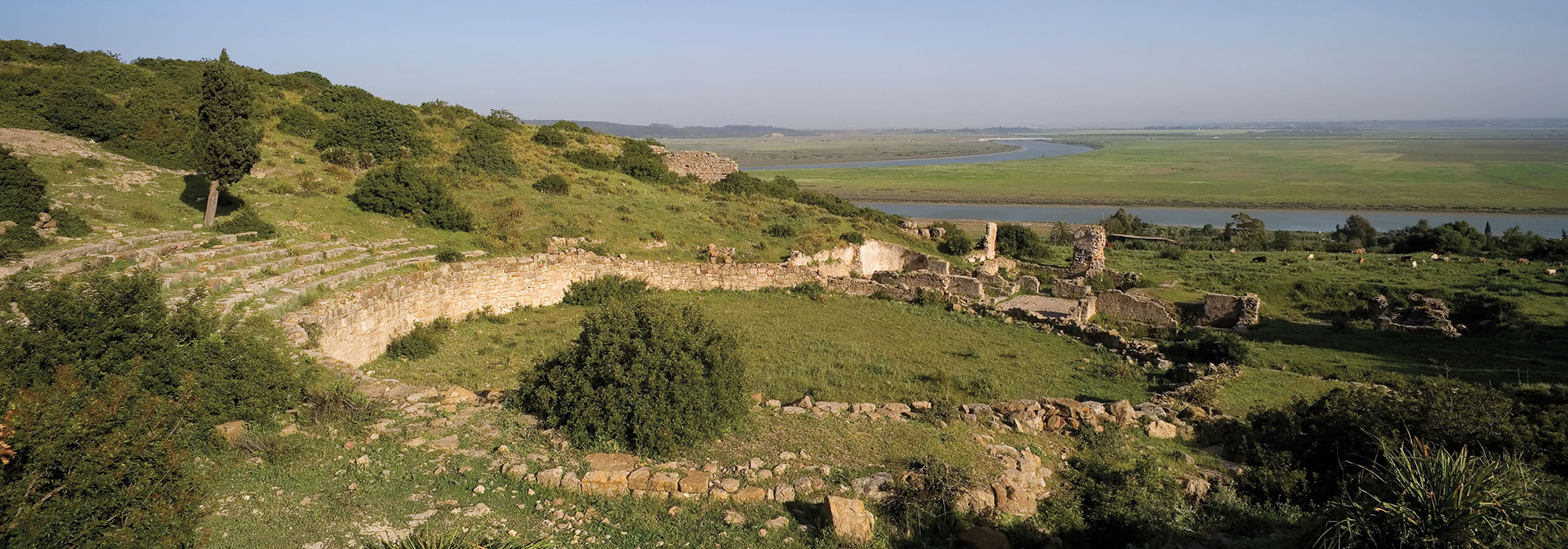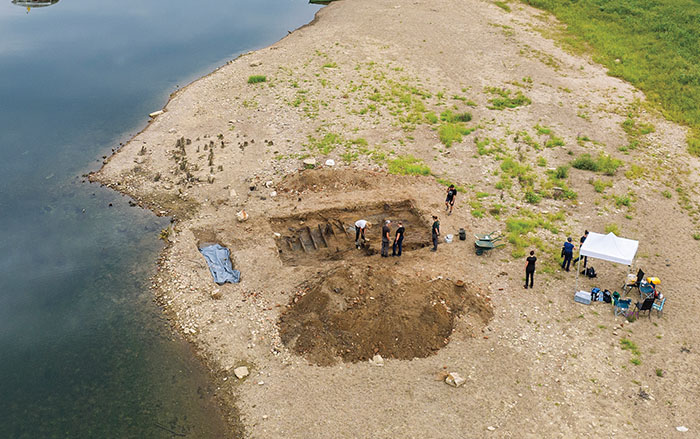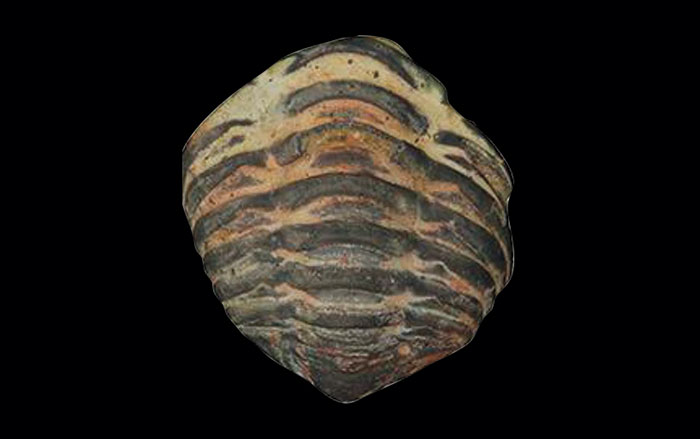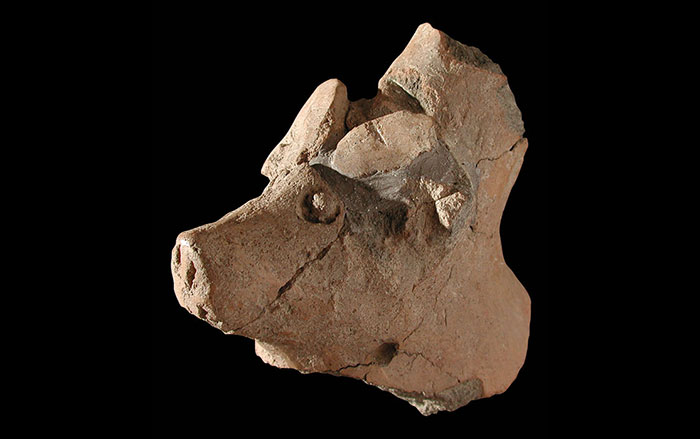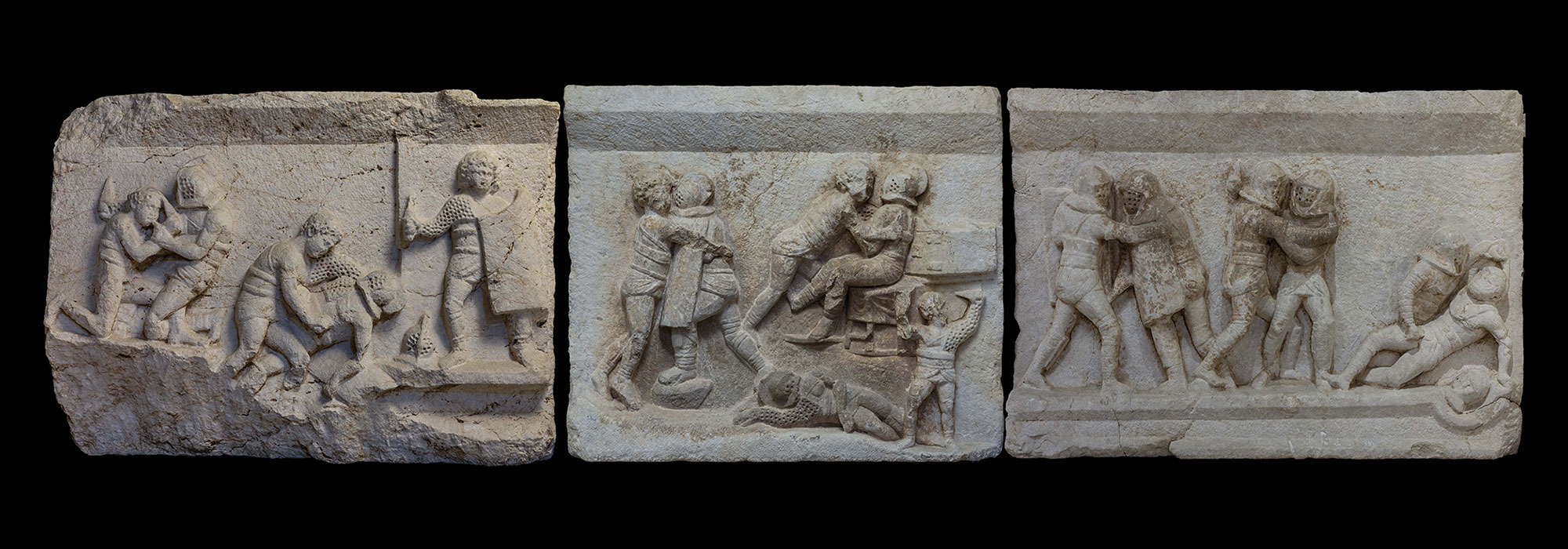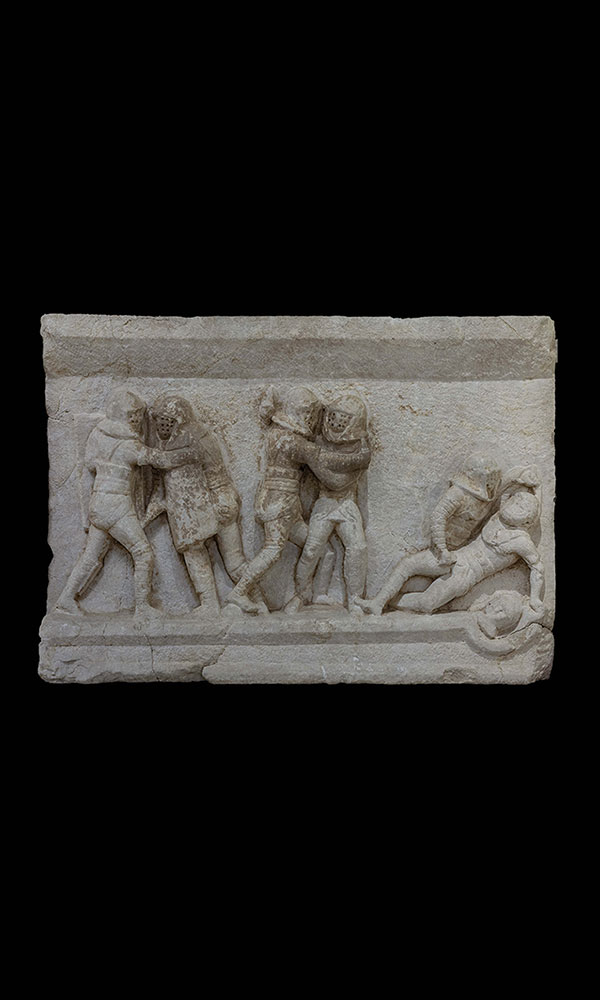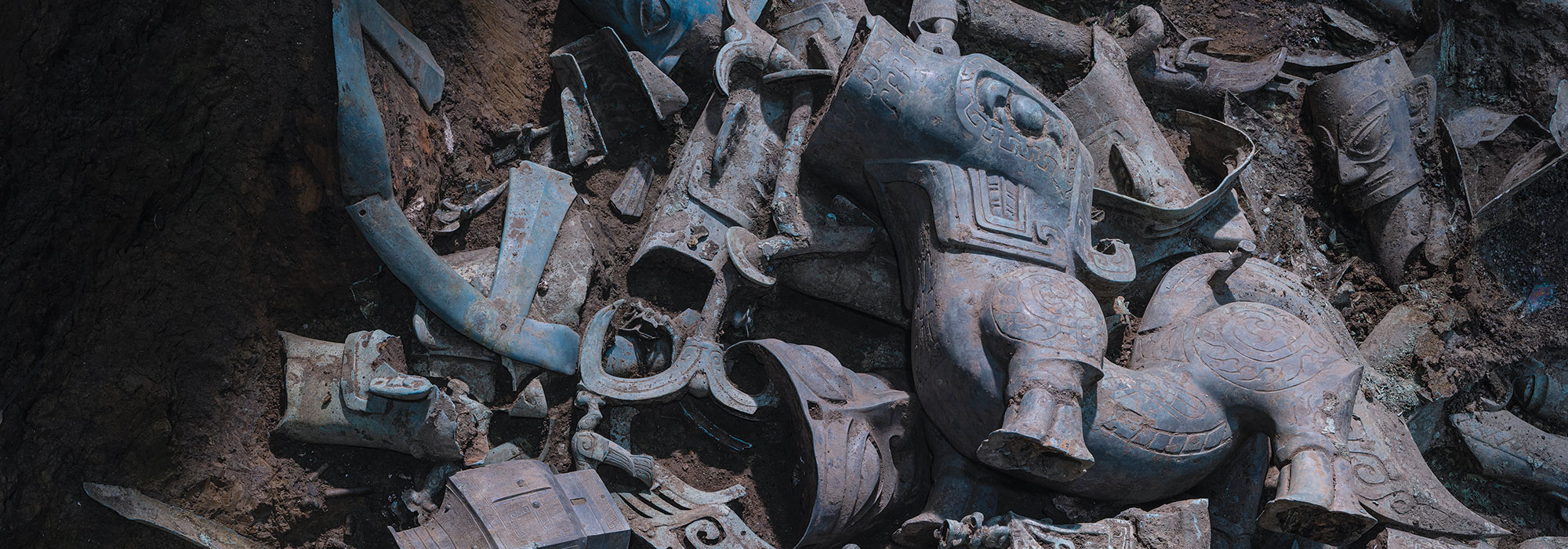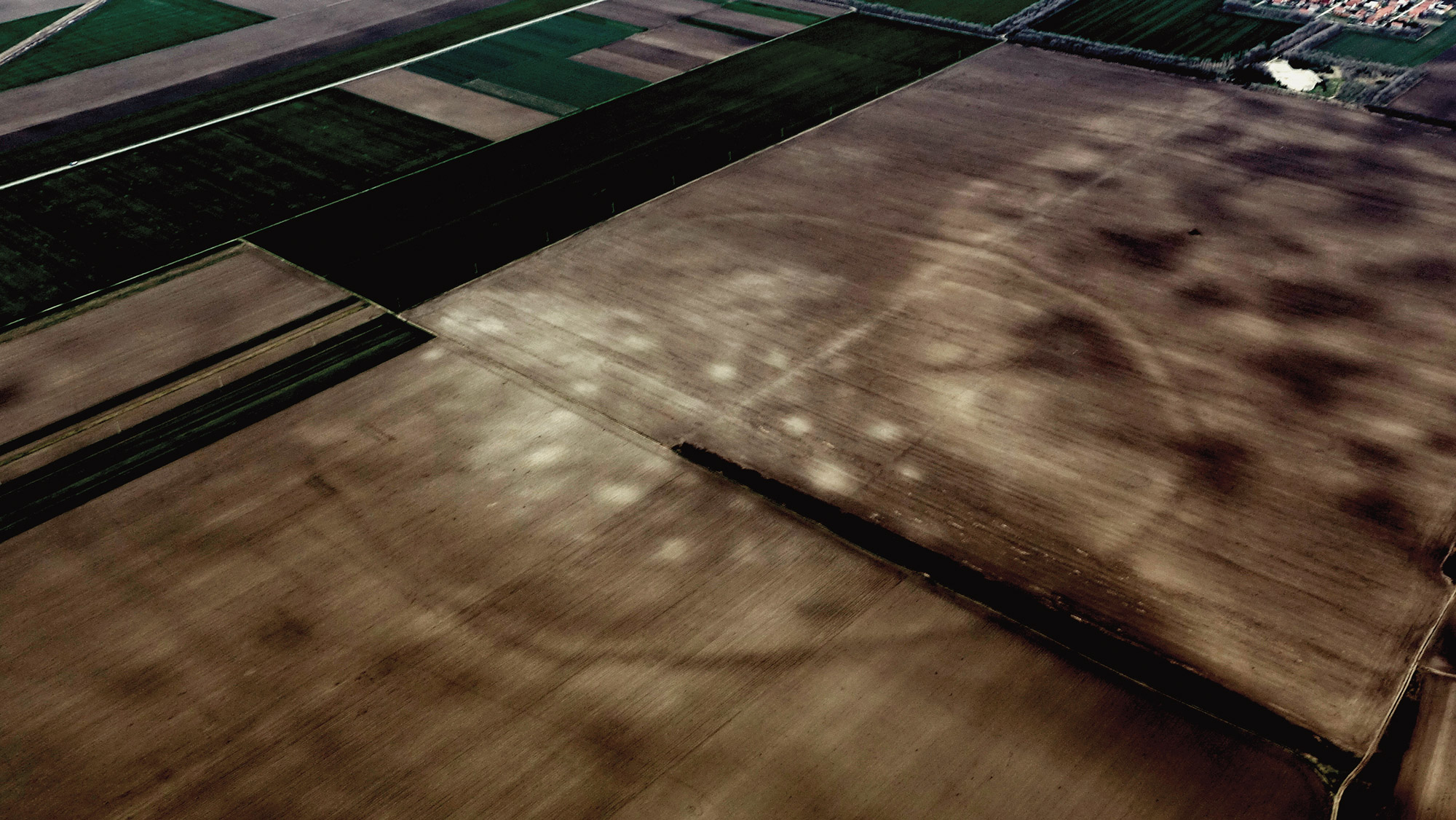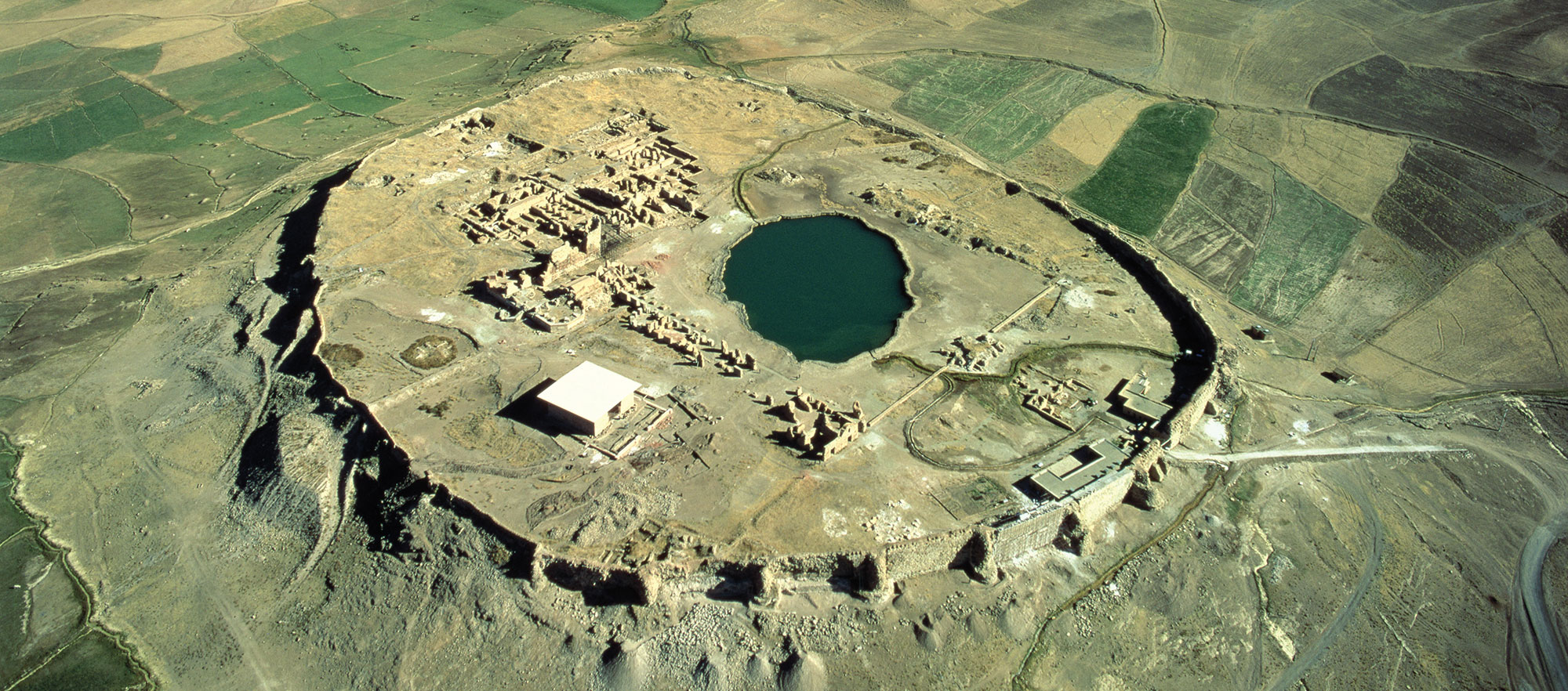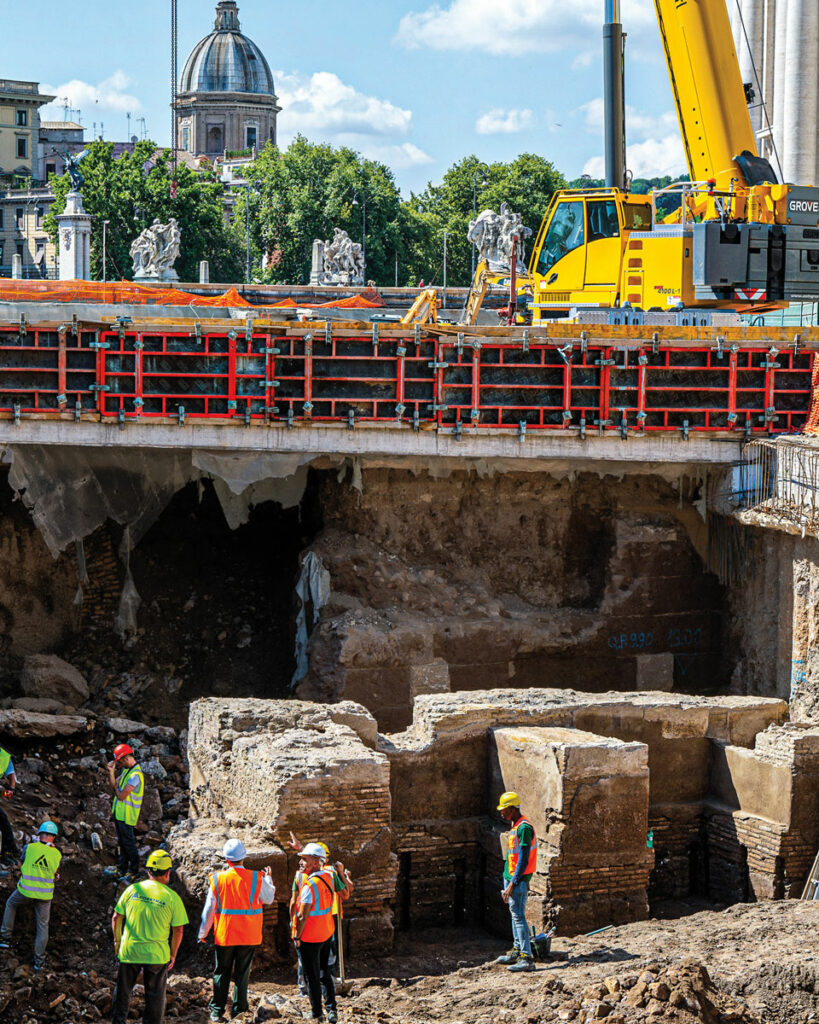
In his On the Embassy to Gaius, the first-century a.d. historian Philo of Alexandria recounts a diplomatic mission he led from Egypt to Rome seeking intervention on behalf of Alexandria’s Jews. During the summer of a.d. 38, violent mobs of Greek residents had desecrated and plundered Jewish synagogues, shops, and homes. Philo describes a meeting of the Jewish envoys and the opposing Greek delegation with the emperor Caligula (reigned a.d. 37–41) that took place in a garden of the Horti Agrippinae, a luxurious estate on the right bank of the Tiber that belonged to Caligula’s mother, Agrippina the Elder. (See “The Fiddler’s Theater” from "Top 10 Discoveries of 2023.") Terracotta sculptures and lead pipes excavated in the late nineteenth and early twentieth centuries were the only traces of the grand residence.
Beneath Rome’s Piazza Pia, archaeologists have now found remnants of what they believe could be the garden where Caligula received the Alexandrian delegations. The excavators unearthed a travertine terrace wall along the riverbank and, beyond it, foundations of a colonnaded portico and a large open space arranged like a garden. A lead water pipe stamped “C Caesaris Aug Germanici”—a form of Gaius Caesar Augustus Germanicus, Caligula’s full name—indicates the emperor was responsible for one of the garden’s stages of construction.
